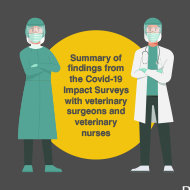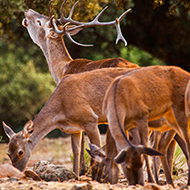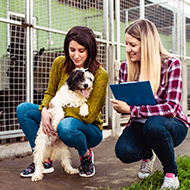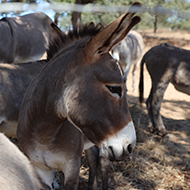The findings reveal a considerable number of vets and VNs are feeling more pessimistic about their work.
RCVS publishes findings from the coronavirus impact survey reports.
A large majority of veterinary surgeons and veterinary nurses saw an increase in caseload due to new animal ownership during COVID-19, according to research conducted by the RCVS.
Findings from the coronavirus impact survey reports for veterinary surgeons and veterinary nurses also reveal some 40 per cent of veterinary surgeons and more than 40 per cent of RVNs experienced concerns for their personal safety aside from catching Covid.
The safety concerns mostly related to client interactions at the practice, and the majority of vets and VNs said this was more frequent than before the pandemic.
Of the 28,718 vets and 19,925 RVNs that responded to the survey, many reported conflict between their wellbeing and professional role.
A high proportion of recipients said they found it hard to juggle their work and caring responsibilities, and many also said their mental health was adversely affected by the experience of working during the pandemic.
Commenting on the findings, RCVS CEO Lizzie Locket said: “While many of the results of the survey may not be especially surprising and confirm what we have already been told anecdotally, it is very important that we have this hard data to hand on the overall impact of the pandemic on individual members of the professions.
“These two reports complement the six surveys that we have conducted with veterinary practices on the economic impact of the pandemic to give us as clear and holistic a picture as possible about the challenges that the professions and the veterinary sector as a whole have faced since March 2020."
She added: “This not only provides a useful historical snapshot, but builds an evidence base to inform future temporary changes should the pandemic continue into more waves, or should future such crises arise.”
The research was conducted by the Institute for Employment Studies on behalf of the RCVS between July and August last year.
It reveals that many veterinary nurses took on extra responsibilities during the pandemic, including general domestic cleaning (70%), clinical cleaning (65%) and reception work (63%).
The findings also show that ,ore than half of vet surgeon respondents who worked extra hours (53%) did so completely unpaid or mostly unpaid, compared to veterinary nurses.
Other key findings include:
- 67 per cent of veterinary nurses experienced a change in shift patterns at some point in the pandemic, compared with 57 per cent of veterinary surgeons
- 49 per cent of veterinary nurses worked additional hours due to others being furloughed, compared to 40 per cent of veterinary surgeons
- 37 per cent of veterinary nurses were furloughed, compared with 23 per cent of veterinary surgeons.
Ms Lockett added: “A large number of both vets and vet nurses who responded said that the experiences since March 2020 have left them feeling more pessimistic about veterinary work and their place within it. I would like to reassure members of the veterinary team that the RCVS is aware and understands.
“We tried throughout the pandemic to support the professions with relevant temporary guidance changes, and we are now working with a range of stakeholders on critical issues such as the workforce crisis, which has been in part caused by Covid. We are also developing tools, training and resources to support the professions, via our programmes such as RCVS Leadership and Mind Matters.”







 RCVS Knowledge has called on vet practices to audit their post-operative neutering outcomes.
RCVS Knowledge has called on vet practices to audit their post-operative neutering outcomes.
